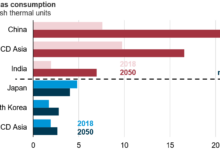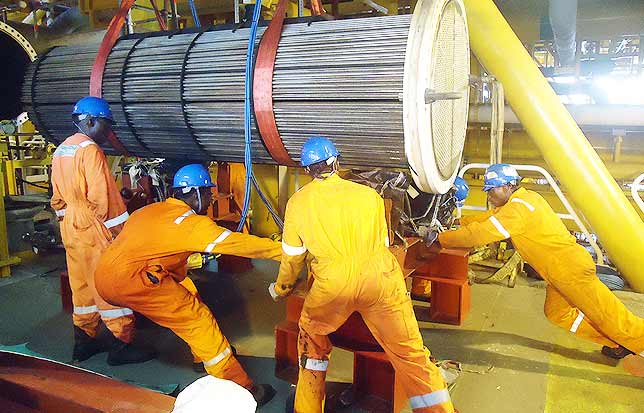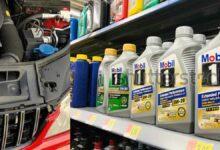
Top 11 petroleum products and their uses
In this post we discuss the top 11 petroleum products and their uses. Petroleum products are extremely products gotten from the extraction of crude oil.
Petroleum is a natural liquid that is flammable and is derived from complex combination of hydrocarbons and organic liquid compounds.
👉 Relocate to Canada Today!
Live, Study and Work in Canada. No Payment is Required! Hurry Now click here to Apply >> Immigrate to CanadaThe product drilled from petroleum is basically called crude oil and these needs to be refined on its own because of its various hydrocarbons mixed up that cannot be used as it is.
Read Also: 9 Ways To Join Oil and Gas Business in Nigeria with minimal capital
Therefore, fractional distillation must be performed to separate each of mixtures at its boiling points to achieve its end products that are useful for consumption.
Top 11 petroleum products and their uses
The largest petroleum product is used as energy carriers which include fuel, oil and gasoline. The fuel can be blended to give gasoline, jet fuel, heating oil, diesel fuel and heavier fuel oils.
The heavier fuel oils are less volatile fractions that can be used to produce asphalt, tar, paraffin wax, lubricating and other heavy oils.
Research shows that the world consumes up to 90 million barrels of petroleum every day. Below are ten top petroleum products and their uses
1. Gasoline
This is also referred to as petrol. It is a transparent liquid that is obtained from fractional distillation of crude oil. It is widely and highly used across the globe that its price has also soared and is continuously changing because of high and consistent demand.
👉 Relocate to Canada Today!
Live, Study and Work in Canada. No Payment is Required! Hurry Now click here to Apply >> Immigrate to CanadaGasoline comprises of organic compounds that is mainly used in internal combustion engines. It is obtained by the fractional distillation of crude oil between 40 oC (104 OF) and 205 oC (401 OF), of its boiling range.
Gasoline is useable in vehicles, compressors, electrical generators etc. gasoline must be able to meet these three primary requirements: to provide combustion pattern, start easily during cold seasons and meet prevailing environmental requirements.
Read Also: Top 10 oil producing states in Nigeria
2. Kerosene
This is also known as paraffin. It is a combustible liquid that contains hydrocarbons. Kerosene lamps is extremely popular though its use as diminished it is greatly and extensively use across the globe for heating, cooking, lighting fuels and toys and a primary fuel for modern jet engines. When used as a domestic fuel, it must produce flame devoid of smoke and odor.
The boiling range for kerosene is between 150 oC to 275 oC to avoid fire hazard in storage and handling. Application of kerosene includes pesticide, solvent, lubricant, x-ray crystallography etc.
Jet fuels should remain clean and fluid free from wax particles at low temperatures that is experienced in high altitude flight. The boiling point for jet fuel is -50 oC (-58 of). The fuel must be free from any suspended water particles that may probably cause blockage of fuel system with ice particles.
3. Lubricating Oils
Viscosity is the major property by which lubricating oil is derived from and classified. It is used to reduce friction between surfaces and is found to have thermal and hydraulic stability as well as low freezing point.
Lubricants contain 90 percent of base oil and 10 percent of additives. Its boiling range is between 300 oC (572 oF ) to 370 oC(700 of). It is used for motor oils, prevent corrosion, rusting, transfer heat and transfer power.
Other additives that improve the performance of lubricating oils are detergents and antioxidants which maintain engine cleanliness and keep carbon particles suspended in the circulating oil.
Read Also: How to Own a Petrol Filling Station in Nigeria
4. Paraffin Wax
Paraffin wax is solid and waxy in nature that is also used as a lubricant. It is mostly kept at solid temperature room. Paraffin is used in making waxing material such as sealand, crayons, waxing surfboards, floors, candle making and cosmetics such as Vaseline etc. its boiling point is greater than 370 oC.
5. Diesel
Diesel is ultra-low sulfur that contains reduced amount of sulfur. It is a derivative of petroleum that is obtained by fractional distillation of crude oil with a boiling range of 250 0C (392 oF) and 350 oC (662 oF) at an atmospheric pressure.
Diesel is easier to refine from petroleum than gasoline and its quality is measured by the numbers of cetane involve. Diesel is primarily used for powering automobile, truck, bus and railway engines. It is also used in gas turbines and external combustion engine.
6. Asphalt
This is commonly known as bitumen. It is black and thicker than than petroleum which obtained both naturally and as refined products.
It is classified as pitch that its viscosity is the same as cold molasses. It is primarily used to lay roads and is obtained by fractional distillation if crude oil at 525 oC (977 OF). Other uses of asphalt are that it is used for waterproofing products that is meant to seal roofs and so on.
Read Also: Capital Needed to Set Up a Petrol Station in Nigeria
7. Coal Tar
Tar can be manufactured from petroleum, wood, coal and peat. It is obtained by a combination of several organic compounds that is called destruction distillation.
Its end products comprises of various hydrocarbon and free carbon. The boiling point for tar is greater than 600 oC. Tar is used as disinfectant, hulls of ships and to seal roofs. Wood tar is also used as spice, cosmetics, anti-dandruff, flavor, shampoo and so on.
8. Petrochemicals
As the name suggests, petrochemicals are chemical products that are derived from petroleum. They are classified as olefins and aromatics.
The sub classes are obtained by the catalytic cracking of petroleum fractions. Petrochemicals are produced by fractional distillation of natural gas and crude oil.
It is used in fertilizers, polish, wax, food additives, synthetic shoes, plastic bottles, etc. its boiling point ranges from 30 oC to 200 oC
10. Liquefied Petroleum Gas
This is commonly called flammable liquid that is a combination of different hydrocarbons. It is produced by refining crude oil and its common forms are propane and butane.
They are used in heating appliances, it is used as a refrigerant, for cooking purposes and in vehicles etc. the boiling range for liquefied petroleum gas is less than 25 0C.
Read Also: How to Produce Vaseline in Commercial Quantities for Sale
11. Fuel Oils
Fuel oil is the heaviest fuel that can be derived from refining crude oil. It is obtained from the distillation of petroleum.
According to ToolsSpecialist Blog, fuel oils have many applications which include: heating homes, it is use for trucks, ships and automobiles, it is use in offices, as a backup in electrical generators and power plants etc.
it is produced by fractional distillation of crude oil between 370 oC (700 0F) and 600 oC (1112 0F) boiling range.






